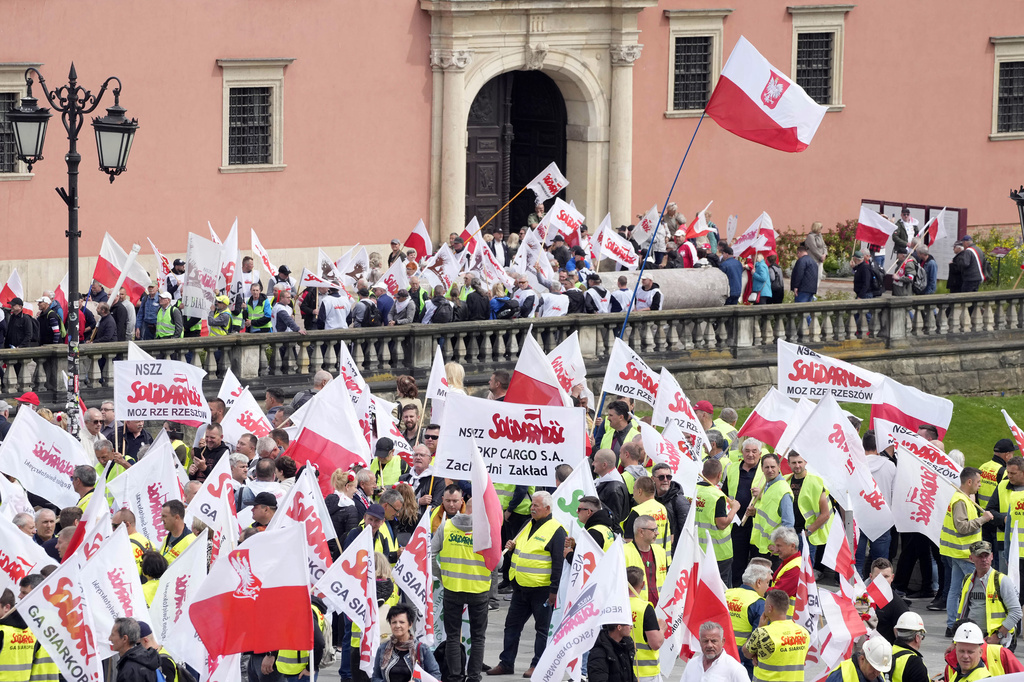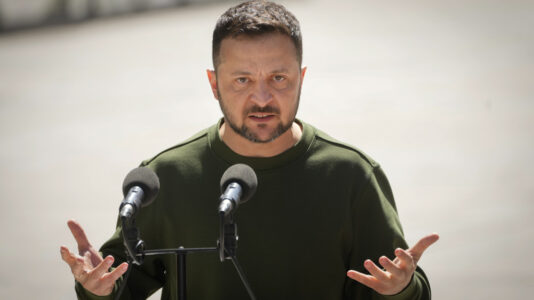Last Friday, a remarkable protest unfolded in Warsaw, where not just farmers but city dwellers alike gathered in numbers to voice a common concern. This protest, aimed against the EU’s Green Deal, reflects a broader apprehension about policies perceived as overly prescriptive and detached from the realities of those they impact. The turnout of thousands of participants revealed a significant, perhaps growing, segment of society that is not only skeptical but openly resistant to what they term as “green tyranny.”
At the heart of this unrest is a collision between contemporary environmental policy and centuries of national pride and resilience.
Poland, a nation historically sandwiched between powerful neighbors and often subjected to foreign rule, is now feeling the grip of another form of imposition — this time, wrapped in the green banner of sustainability. While environmental concerns are universally recognized, evidenced by severe weather patterns, African heatwaves, drastic temperature shifts, and prolonged droughts, there is a strong sentiment that the solutions being proposed are not just unwelcome, but are being enforced without proper regard to their consequences or feasibility.
Those who have ravaged their own environments during periods of significant economic growth, rising to become the third or fourth-largest economies in the world, should not dictate actions to countries that they have historically destroyed and plundered. These countries have had to strive for a better future through their own efforts, not through looting and overseas colonies.
The EU and Polish leaders, many of whom were advocates for stringent green policies while in opposition, are now seen as the architects of these new challenges. This sentiment is especially potent when juxtaposed against the backdrop of the war in Ukraine and an increasingly assertive Russia. Under these conditions, policies such as the Green Deal are perceived not merely as ill-timed but as fantasy, detached from the geopolitical and economic realities faced by everyday Poles.
Moreover, the demonstrators argue against a narrative that demands sacrifice and compliance from the average citizen, while the elite appear to operate under a different set of rules. The pushback is not against environmental conservation per se, but against the method and pace of the proposed changes — forced deindustrialization and a return to less efficient agricultural practices under the guise of ecological necessity.
The presence of urban residents in this protest is particularly telling. It suggests a broader disaffection that could have implications for the upcoming European Parliament elections. Here lies an opportunity, to reject what they see as an orthodoxy cloaked in environmental concern, which in practice privileges costly technological solutions that remain out of reach for the majority, while offering minimal real-world environmental benefits.
This protest in Warsaw is a clear signal that policies must be grounded in the practical realities and historical contexts of the populations they affect. It is a call for a more measured, voluntary approach to environmental issues — one that respects the diverse economic and historical experiences of EU member states rather than imposing a one-size-fits-all solution.






